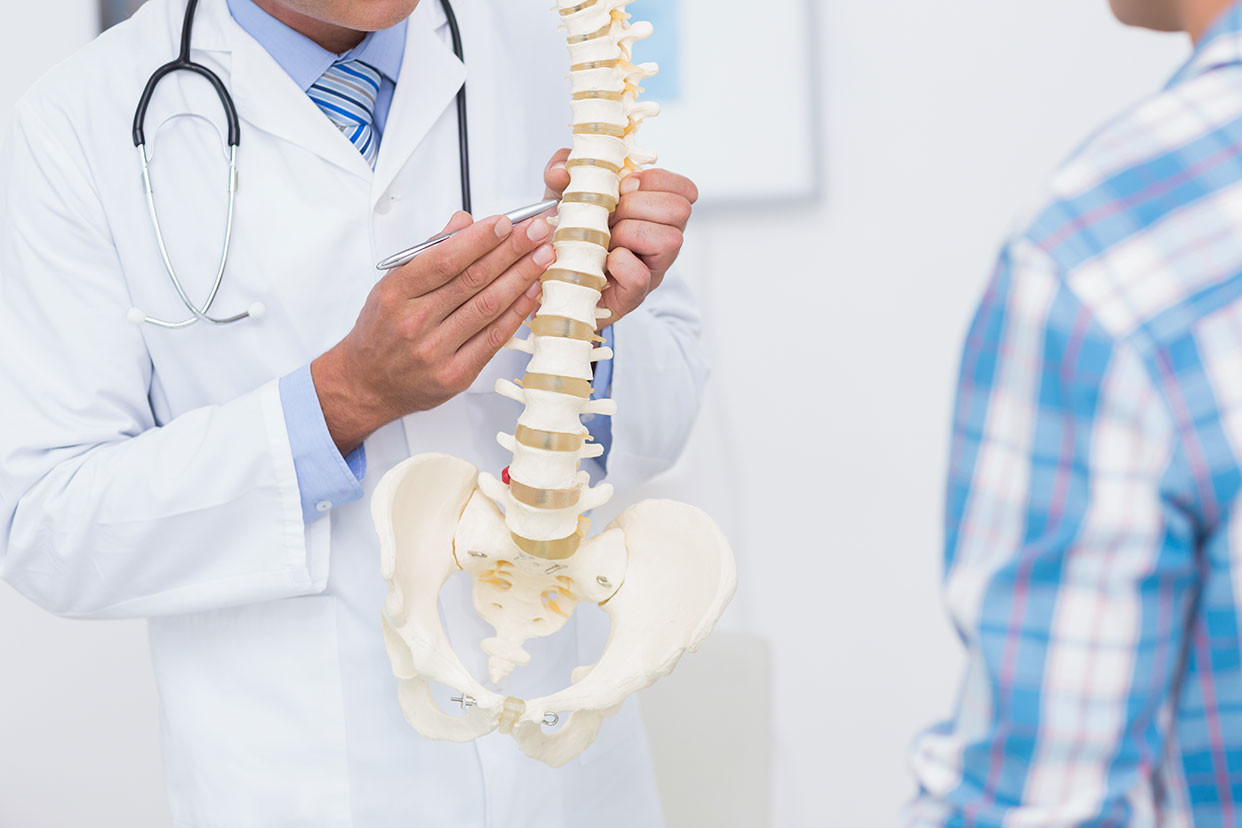Revision Spine Center
Revision Spine Treatment Center
There are many ways to treat spinal diseases and disorders both in Thailand and overseas, including those in the neck, chest, waist and sacral vertebrae. Even though many private and public hospitals perform many surgeries on patients with spinal disorders each year, the results of the surgeries vary depending on the skill and expertise of the doctor and the medical tools used. Patients who have had successful surgeries will, to a certain extent, have had their problems solved. However, patients who do not feel better even after a surgery may face other complications, and some of the patients who have received successful surgery may face additional problems that surface later on. Looking after such patients can be challenging. The Failed Back Center or the Revision Spine Center at Samitivej Srinakarin Hospital helps to solve the plight of these patients. The center’s objective is to provide treatment to patients, while also educating and providing research opportunities to doctors desiring further study to better develop their ability to provide treatment to patients. Generating revenue is not the center’s main objective which is why the center is prepared to provide care and treatment to all patients with failed back problems, regardless of whether they can afford to pay for the treatment or not.
Failed back surgery
There is no guarantee that back surgery will be 100% successful. Persistent back pain that occurs after a back surgery is called “Failed Back Surgery Syndrome (FBSS).” This condition can happen to anyone around the world. Instead of recovering from the surgery, a patient experiences increasing discomfort and chronic back pain. Many patients experience tormenting pain even after several years.
Possible factors associated with spinal disorders after a back or spinal surgery:
● Expertise of the doctor providing treatment or surgery is an important factor in the success of a spinal surgery, especially during a surgery to correct a failed surgery. The surgeon must be a highly experienced specialist in spinal surgery.
● Readiness and preparation prior to surgery of both surgical equipment and the specialist team.
● The patient and the type of spinal disorder that the patient is experiencing are also major factors, along with correct post-surgical care. If proper post-surgical care is not provided, the patient may experience problems including other spinal disorders, osteoporosis or other underlying health diseases.
● The correct technique and method can help relieve patients from pain and suffering.
Treatment techniques
Surgery is not always required for patients with FBSS. Patients who experience tormenting pain in the initial stages post-surgery can recover through proper consultation and treatment by a specialist. Patients who experience pain after back surgery must find the most suitable form of treatment by considering the following factors:
1. What is the level of pathology?
2. Are there other neurological conditions?
3. How much is the pain affecting one’s daily routine?
Procedures in assessing the condition and providing spine treatment
1. A senior physician at the center will provide an assessment of the patient’s condition and decide on an appropriate course of spine treatment.
2. Providing treatment and performing surgery will be at the sole discretion of the center’s spinal specialists.
3. The physician who is providing treatment must be a medically trained specialist and a spine expert.
4. Prior to and after surgery, the surgeons will regularly meet to analyze and discuss the results of the spine treatment.
5. A systematic follow-up procedure will be conducted on the patient by spinal surgeons and rehabilitation specialists to ensure the effectiveness of the medical procedure.
Rehabilitation after surgical spine treatment
Patients who have received failed back surgery must follow their customized spine treatment program. While the surgeon will provide appropriate medical advice to the patient, each patient should also enquire how they should conduct themselves to avoid a recurrence of FBSS. Each patient’s condition and situation is different, and depends on the result of the surgery, the patient’s health condition and proper post-surgical care.
Our services and medical facilities
There are currently several centers that have been set up in Thailand to treat spinal diseases. At Samitivej Srinakarin Hospital, we are unique in that we have a center that treats spinal diseases at the waist area using both invasive and noninvasive medical techniques. The hospital has received the Clinical Care Program Certification (CCPC) from Joint Commission International (JCI). This certification warrants that treatments we provide to our patients are on par with those in the United States. In addition, our hospital is fully equipped with state of the art medical tools and technologies to treat spinal diseases and offers comprehensive medical services in the following areas:
● Patient examination rooms and treatment rooms, fully furnished with medical tools and equipment.
● An operating theatre that meets a high standard of quality, equipped with advanced medical devices such as C-ARM (both 2-D and 3-D). An MRI machine is located inside the operating theatre to assist surgeons during and after the operation and, in some cases, is used during the operation should any problems arise.
● Use of advanced technology medical devices in the diagnosis of spinal and joint diseases such as a bone density machine, navigation system and MRI machine.
● Around-the-clock services such as custom shoemaking, support equipment for the arms, legs and body, and support devices for before and after surgery.
● A team of doctors who are specialists in all areas related to the treatment of the spine. This includes a team of neurosurgeons, plastic surgeons, rehabilitation doctors, and trained and experienced physical therapists prepared to provide rehabilitation services to patients suffering from spinal diseases or disorders. Our doctors will provide patients with close medical consultancy and advice on correct rehabilitation techniques on a continual basis.

